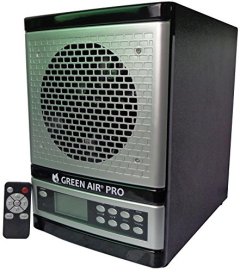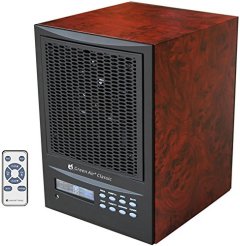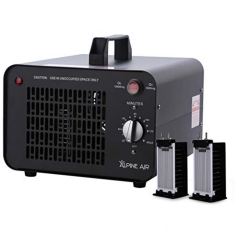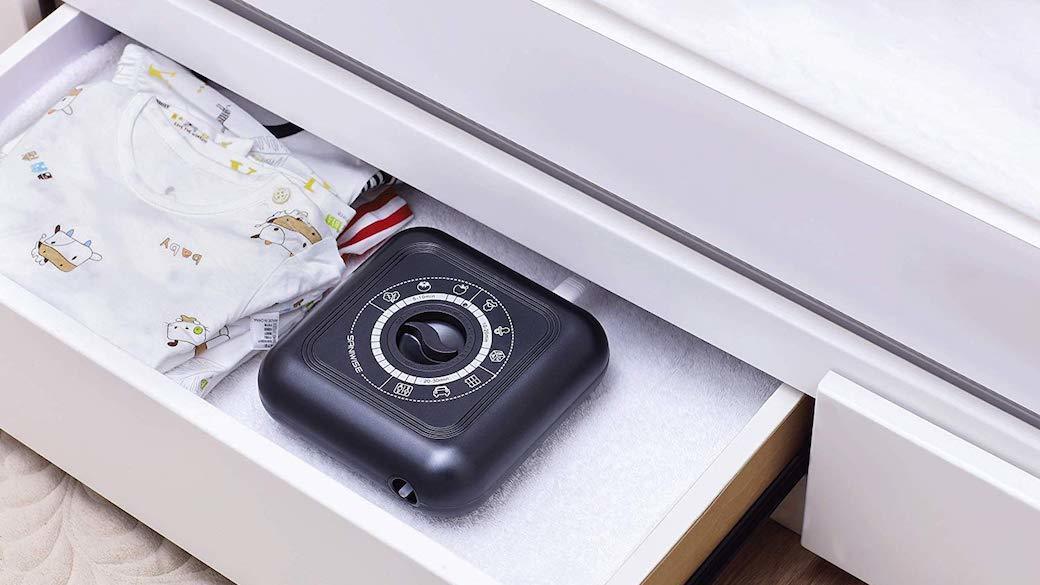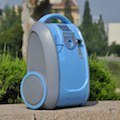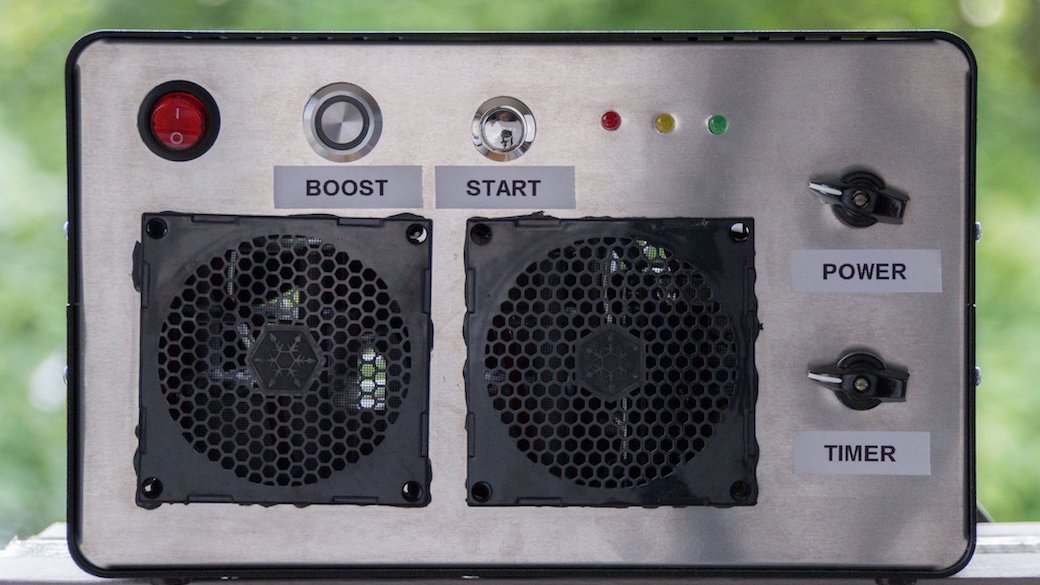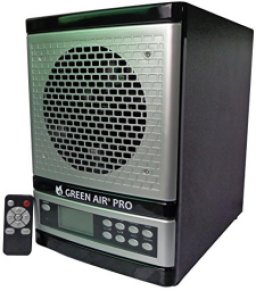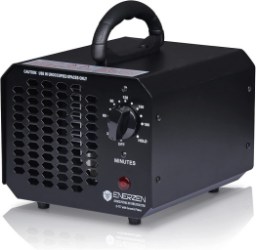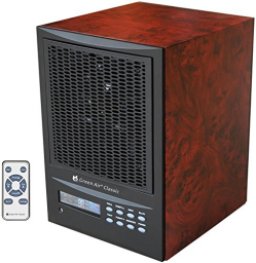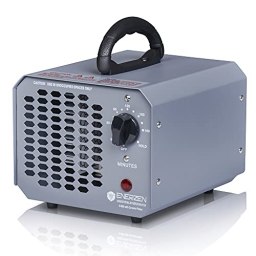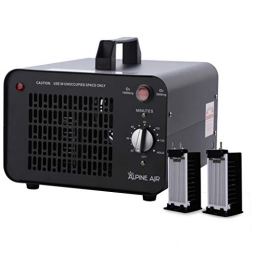Buying guide for Best ozone generators
Every house has a distinctive odor. For some, it's a pleasant one, but others, not so much. You might think you are forever cursed with a stinky house, but it is possible to kill the bacteria causing your home to smell and once again have untainted air. That is exactly what an ozone generator does.
Ozone kills indiscriminately, so you must be very careful when choosing and using an ozone generator. You want a unit with a timer so it shuts off after the treatment is finished. A model that also features a HEPA filter can remove allergens from the air. An ozone generator requiring less maintenance offers a more pleasant user experience.
The primary consideration
Unlike an air purifier, an ozone generator does not draw air into the device to remove airborne particulates, it releases a gas into the environment that destroys living things, such as the bacteria which can cause troublesome odors. According to NIOSH (National Institute for Occupational Safety and Health), ozone levels as low as 5 ppm (parts per million) are considered immediately dangerous to life and health. It is important to remember the danger of even trace amounts of ozone — you should never be in the same room as an ozone generator while it is operating.
The most important feature to consider when selecting an ozone generator is how much ozone the unit can actually generate per hour. Technical aspects of how the ozone is produced or how many ceramic plates your machine has are less important to know. If the manufacturer does not list the amount of ozone that can be produced each hour, there's a good chance it's not an impressive amount. The higher the ozone output, the more effective the treatment is and the less time you need to have the machine on and your room (or home) unoccupied.
Expert tip
Absolutely remove all people, pets, and plants from the home during an ozone cleaning cycle.
BestReviews Home Improvement and DIY Expert
Other features
Timer
Since it’s dangerous to be in the same room as an active ozone generator, opt for one with a timer so it can shut off on its own. Additionally, one with a delayed start can come in handy; it gives you time to get out of the room before the machine starts generating ozone.
Fan
An ozone machine doesn't work by drawing air through the unit, it needs the ozone to disperse through the environment to be effective. The stronger the fan is, the greater the coverage. If you can find a unit that directs the ozone up it increases its coverage since ozone is heavier than air.
Ozone control
Some ozone generators have a control that allows you to set the desired level of ozone. If that is important to you, look for a model with that feature.
Filter system
If you need dust and allergens removed from the air, an ozone generator alone cannot do it. You need an ozone generator that features a filter.
Remote
Though you likely need to pay a bit more, you can find ozone generator models you control with a remote.
Style
The cabinet housing your ozone generator can range from an industrial look to a more traditional wooden cabinet. Unobtrusive plug-in models are also available, which are barely noticeable. If you have a stylistic preference, look for a model that aligns with your tastes.
Maintenance
Some ozone generators, especially ones with additional features, may require a great deal of maintenance. If upkeep is not your forte, look for a model that requires minimal maintenance.
Expert tip
Read all instructions carefully. Ozone can react with other chemicals in the air to produce additional chemicals and fine particles that can also be irritating to the eyes, nose, throat, and lungs.
BestReviews Home Improvement and DIY Expert
Ozone generator prices
Inexpensive: The lowest price range for ozone generators is $22 to $50. In this bracket, the ozone generators are portable machines that plug directly into an outlet like a nightlight would, and are only effective in small spaces such as a bathroom. Do not be misled by the small size, these units must still be run in an empty room for safety.
Mid-range: From $50 to $90, the ozone generators are tabletop-sized and feature a timer along with a larger, more powerful fan. These units are suitable for use in a large room.
Expensive: From $100 to $200 and more, you can find models that allow you to adjust the amount of ozone produced. Additionally, ozone generators in this price range may include remote control operation, multiple ceramic ozone plates, and other features such as a HEPA filter to remove allergens from the air.
Caution
In the long term, the
EPA and
ALA stance is that ozone causes harm to the cardiovascular system and leads to potentially fatal medical conditions.
STAFF
BestReviews
Usage tips
Improperly using an ozone generator can be fatal. It is important to make safety a priority and follow all usage instructions. Please note, these tips do not replace any instructions that come with your machine, and they are by no means all-encompassing. They offer a general idea of how the process works.
-
Use signage. It is essential to place warning signs on all entry doors when an ozone treatment is in progress so no one unknowingly enters the hazardous environment.
-
Pre-clean the area. Before using an ozone generator, it is important to give the area a thorough cleaning to allow the ozone to work more effectively.
-
Seal the area. Close all doors and windows to contain the ozone so it can efficiently do its job.
-
Open cabinets. Open cabinets and closets in the contained area to allow the ozone access to all areas of the space being treated.
-
Elevate the unit. Ozone is heavier than air. Unless your ozone generator has a fan that may be directed upward, the machine works best when elevated.
-
Circulate the ozone. If you have central air, you can use it to help circulate the ozone. Otherwise, using strategically placed fans is your next best solution.
-
Use a timer. The safest way to stop an ozone treatment is by using the timer on your unit so it automatically shuts off after the treatment is completed.
-
Stay out. At no time should you be in the same room as an operating ozone generator.
-
Be patient. Give the ozone ample time to revert to normal air before reoccupying the treated space.
- Test the air. If you want to be absolutely certain the air is once again breathable, you can test the air with a handheld ozone detector.
Expert tip
For best safety practice, wait at least 4 hours after turning off an ozone generator and opening windows before returning to regular use of the room. This gives more than adequate time for the air to stabilize.
BestReviews Home Improvement and DIY Expert
FAQ
Q. Is ozone good or bad?
A. The answer to that question is dependent on where the ozone is found. The ozone high over the earth — a little over six miles high — is a lifesaver. This ozone protects us from the sun's harmful ultraviolet radiation. Down on the ground, however, the EPA considers ozone a harmful pollutant. It is biocidal: it's a substance that destroys membranes, ruptures cells, and deactivates enzymes.
Q. How does ozone eliminate odors?
A. All the qualities that make ozone lethal to plants and animals allow it to kill odor-causing bacteria as well.
expert tip
If you or anyone in the home has respiratory issues, consult a physician before using an ozone generator to clean your air. The risk-to-benefit ratio should be discussed with a healthcare professional.
BestReviews Home Improvement and DIY Expert
Q. Is exposure to ozone safe?
A. No. It is a toxic substance. In fact, ozone generators have been banned in California.
Q. Why do people use ozone generators?
A. Ozone generators are one of the most powerful, cost-effective ways of permanently eliminating odors. Although ozone is a potentially lethal substance, it is also extremely aggressive, which means it breaks down rather quickly, having a half-life of only about 30 minutes. (Note: colder temperatures may increase the half-life of ozone.) Leaving the room or your home for a period of time is an acceptable solution for individuals who are plagued by relentless odors and would like to use an ozone generator to solve the problem.
Q. Is an ozone generator safe if used properly?
A. If you follow all the safety precautions and use an ozone generator exactly as directed, it can be somewhat likened to using a bug bomb — you don’t want to be around when it’s active, but after a sufficient airing-out period, the ozone will be gone.


